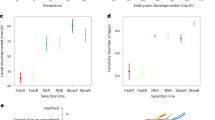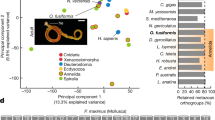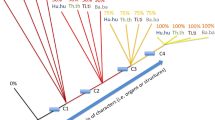Abstract
DR. B. DAWES, in his recent communication1, has made an important contribution to our knowledge of the trematodes. In the interests of historical accuracy and in justice to a great nineteenth-century zoologist I would, however, like to point out that the life-histories of several trematodes, including that of Fasciola hepatica, were beautifully and accurately described by J. J. S. Steenstrup in his work “On the Alternation of Generations”, translated into English and published as a Ray Society monograph in 1845, nearly forty years before the work of R. Leuckartand A. P. Thomas. Steenstrup solved one of the most difficult of all zoological problems, and his ideas on the alternation of generations were considered so revolutionary that G. Buck, his translator and editor, thought fit to write an apologetic introduction to assuage the anger of his readers.
This is a preview of subscription content, access via your institution
Access options
Subscribe to this journal
Receive 51 print issues and online access
$199.00 per year
only $3.90 per issue
Buy this article
- Purchase on SpringerLink
- Instant access to full article PDF
Prices may be subject to local taxes which are calculated during checkout
Similar content being viewed by others
References
Nature, 184, 1334 (1959).
Author information
Authors and Affiliations
Rights and permissions
About this article
Cite this article
JEFFERIES, H. Elucidation of the Life-cycle of Fasciola hepatica . Nature 185, 331 (1960). https://doi.org/10.1038/185331a0
Issue date:
DOI: https://doi.org/10.1038/185331a0



